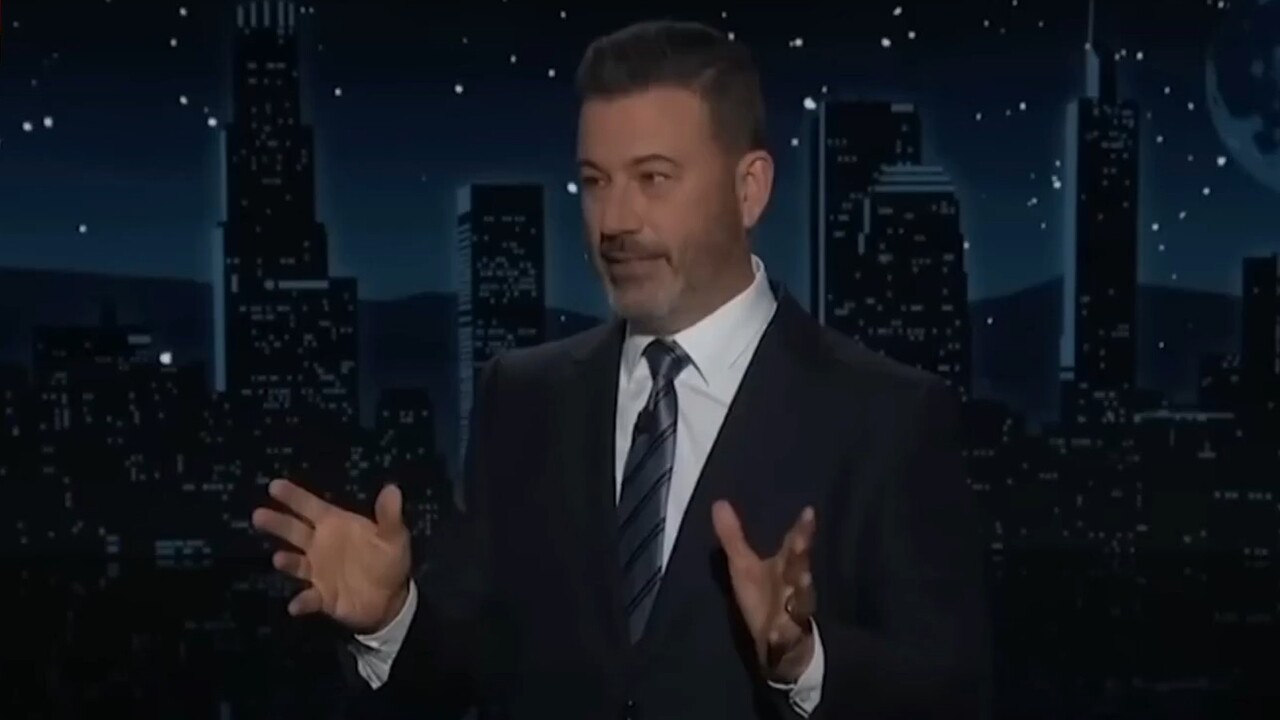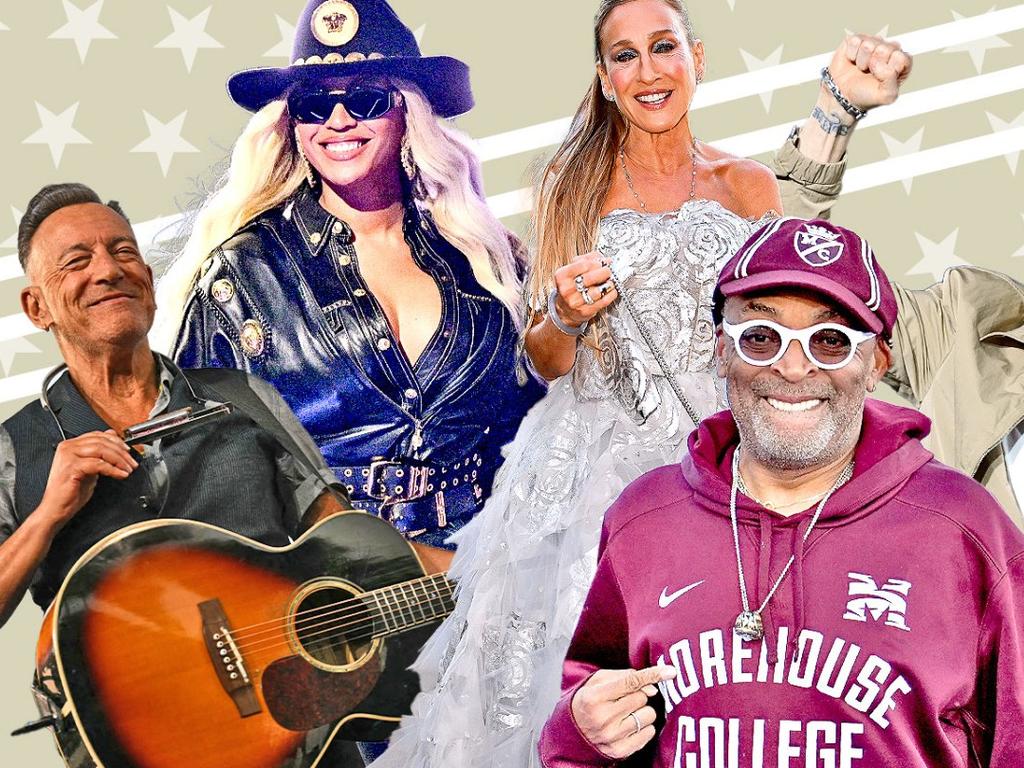Why right-wing pop culture is on the rise

To them we can add the more conventionally named Adin Ross, Andrew Schulz and Logan Paul. Each has an audience in the millions or tens of millions. All are Trumpist or Trump-curious. All granted their favoured candidate long, admiring and in some instances, frankly slavish interviews.
Since Kamala Harris’s defeat, wiser Democrats have been fretting over their party’s lack of “organic” engagement with the American electorate. Lavish donor billions meant they were able to hose battleground states with as much TV advertising as they liked. But modern liberals have nothing to match the spontaneous influence of the online right.

One discovery of the US election is that the left’s much-vaunted cultural hegemony is not as total as many believed. It is true that innumerable actors and singers turned out to endorse Harris. But actors and singers are not the unchallengeably central figures they once were.
The highly visible liberal dominance of the old entertainment industry – tear-stained Oscars night pleas for progressive causes, faultlessly diverse Disney films – has tended to obscure a rightward shift in popular culture. Much of it is happening on the internet, out of sight of what used to be the mainstream. This is the world of podcasters, video game streamers, newsletter-ranters and memers.
You do not have to credit the online right with much in the way of cultural or intellectual achievement but it is hard to deny its vitality. A conservative philosopher, Jordan Peterson, sold out London’s O2 arena. A conservative (or at least conservative-sympathising) comedian, Joe Rogan, is the most popular broadcaster in the English-speaking world.
I can’t think of left-wing equivalents of either of those phenomena. Nor of a figure like Ben Shapiro, whose political commentary has made him an international celebrity. Nor even of the strange rabble of zany cult figures and intellectual eccentrics continually being thrown up by the anti-woke movement. Consider even a character such as Bronze Age Pervert, the anonymous blogger whose pseudo-Nietzschean manifesto Bronze Age Mindset became required reading among young staffers in the last Trump White House. He may not be a serious thinker but he is at least a symptom of what you might call the modern right’s animal spirits.

All this is sometimes missed by conservative pessimists accustomed to bewailing the left’s “long march through the institutions”. Liberal dominance of academia and the arts is indeed formidable but its importance can be overrated. How much of an achievement is a long march through an institution if the walls of that institution are crumbling?
In 2024, taking over a university humanities department looks a bit like seizing control of a melting iceberg. Progressive academics can put trigger warnings on Shakespeare but they can’t stem the rapid decline of young people studying literature.
Publishers can spend hundreds of thousands of pounds on stiflingly virtuous literary fiction but they can’t guarantee readers for those books. Curators can compose museum labels explaining the excruciating logic by which William Hogarth can be said to be implicated in Britain’s imperial atrocities but they can’t stop sliding post-pandemic visitor numbers.
The cultural energy is moving elsewhere. Part of this is due to shrewd strategy on the part of wealthy conservatives such as the billionaire Peter Thiel who has been funding podcasters, artists and even a film festival for many years. But much of the blame lies with progressives themselves. Many have had a thrilling time enforcing punishing rules on each other about what is permissible to say and think. The consequences were inevitable. If you insist on limiting your political allies to repeating worthy platitudes and pious absurdities, you should not then be surprised that nobody else particularly wants to listen.
Ten years of hostility to free thinking and free speech has seriously damaged the left as a cultural and intellectual force. Almost all artistic endeavours, from the high to the low, surprise and delight by breaking the rules. There is nothing drearier than obedient art. Much “woke” culture is simply not entertaining. No wonder audiences are looking elsewhere for fun.

Witness, for instance, the recent rise of “anti-woke” comedy. I am not much of a fan of Ricky Gervais’s thuddingly predictable provocations but he answers a need. So do comedians such as Dave Chappelle and Jimmy Carr. All are hosted by major streaming services. Indeed, it may soon be inaccurate to speak of the right’s cultural energy as a phenomenon radiating from outside the mainstream.
The most popular documentary in America this year was the anti-DEI satire, Am I a Racist? The Guardian has begun to fret about “the right-wing music suddenly storming the charts”. Oliver Anthony’s viral hit Rich Men North of Richmond is a conservative favourite. Another recent number one, Jason Aldean’s bracing law-and-order anthem Try That in a Small Town, is frighteningly stern about the sorts of people who “Cuss out a cop, spit in his face/ Stomp on the flag and light it up”.
Those successes remind us that there is nothing inevitable about a liberal entertainment industry. Since the 1960s, successful pop culture has thrived on outrage, provocation and rule-breaking. A political movement that rigorously opposes those things will struggle to maintain its influence.
The Times






Theo Von, Lex Fridman, The Undertaker, The Nelk Boys. Among the many YouTubers, podcasters, streamers and influencers who lined up to laud and promote Donald Trump during his election campaign are several characters who always sound to me as though they should be minor antagonists in a Marvel superhero film.